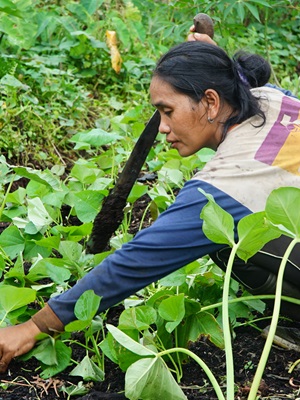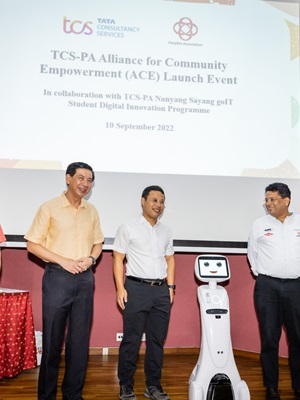When I mention the word 'bank', you probably think of DBS or UOB—financial institutions where you keep your money. But what if I told you there's a form of currency more valuable than cash? This currency is essential for our daily interactions, crucial to start building early in life, and like wealth, passes from generation to generation. Let me introduce you to the currency of vocabulary.
If I may offer my two cents, I believe vocabulary has the power to break the generational cycle of poverty, especially when developed from a young age. The competition homepage states, 'we believe words can spark awareness, empathy, and action.' But why do words possess these powers? Fundamentally, vocabulary is our medium for understanding and being understood, a platform for communication and comprehension.
Consider playing charades, unable to convey the word lingering desperately on your tongue, feeling the verbal frustration as you shake your head helplessly. Or imagine travelling in a foreign country where you can't understand the language. Surrounded by unfamiliar sounds, you rely solely on gestures to find directions to the nearest bus stop. Both examples demonstrate that vocabulary forms the essential bridge in human interactions, the medium that makes meaningful exchanges possible.
Now imagine how this applies to young children just learning to interact with the world. For them, vocabulary development is critical for self-expression and emotional growth (Rantalainen et al., 2020). For young minds brimming with unexpressed emotions, vocabulary guides them toward personal autonomy and emotional maturity.
Beyond social development, vocabulary is equally critical for educational success. In classrooms, children are immersed in words. From lessons to textbook readings, words become the currency for acquiring knowledge. The more vocabulary students possess, the better equipped they are for secondary and tertiary education. In today's knowledge economy, medium to high-paying jobs in almost every sector require at least a bachelor's degree. Therefore, a larger vocabulary directly translates to higher earning potential (E.D. Hirsch Jr, 2013).
The concept of vocabulary as currency becomes especially clear when examining the cycle of poverty. This cycle demonstrates how early education impacts job prospects, which consequently traps individuals within socioeconomic brackets. The gap between educational achievement and potential earnings has been widening for the past 50 years (Reardon, 2011), thereby ossifying social mobility within generations and hampering overall socioeconomic development.
Rather than relying solely on traditional financial support, I propose placing greater emphasis on early childhood vocabulary development. The most accelerated learning period occurs between ages 0 to 5 (Isabelle Hau, 2025). Yet by age 3, children from lower-income backgrounds have heard 30 million fewer words than their higher-income counterparts (Hart & Risley, 2003). During the most formative period of development, insufficient support reaches those who fall through the cracks. The educational gap that creates today's socioeconomic inequality truly begins as a race from birth. Only by supporting and nurturing children from the earliest possible age can we begin to narrow this inequality.
This challenge cannot not be easily overcome. The income-achievement gap has suffered irreversible damage from the effects of COVID-19 and online learning (Reardon, 2023), making community and school-based interventions more necessary than ever to address this damage. Yet, it's never too late to begin. Vocabulary will always remain our primary medium of communication and interaction. Unless we revolutionize educational learning and assessment entirely, vocabulary will endure as the currency of knowledge for generations to come. Therefore, for a more equitable future, we must invest more in building word banks than in filling financial ones.
Posted 04/09/2025

















